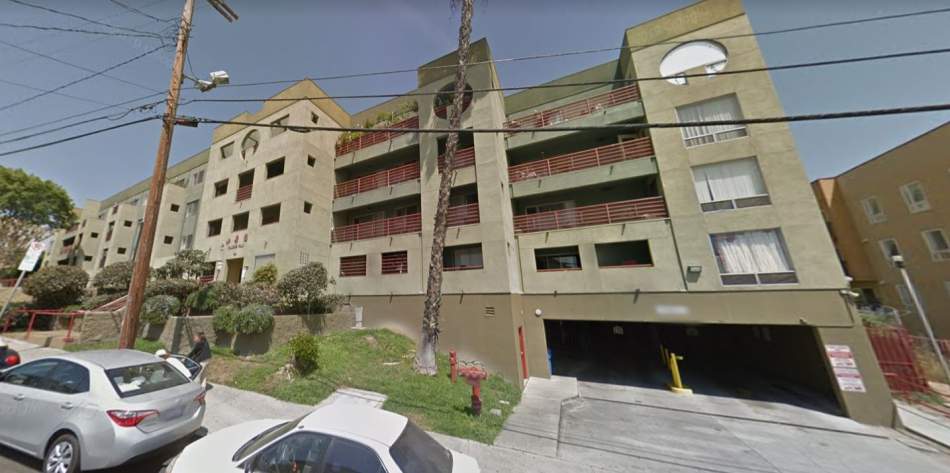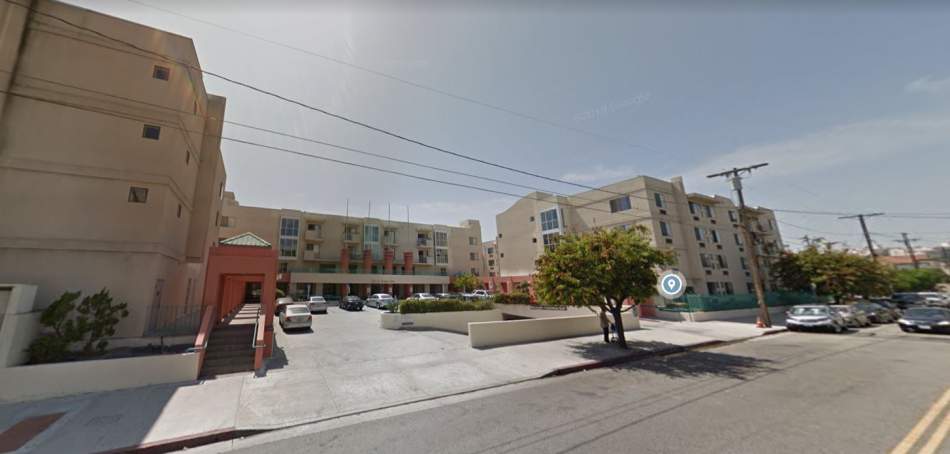The City of Los Angeles is taking the first steps toward eminent domain proceedings for the Hillside Villa Apartments, the latest development in the effort to maintain Chinatown's diminishing supply of deed-restricted affordable housing.
The 124-unit complex, located at 636 N. Hill Place, has been the subject of multi-year negotiations between City officials, tenant advocates, and property owner Thomas Botz regarding expiring affordability covenants that date to the building's opening in 1988. Although the parties reportedly struck a compromise in 2019 - consisting of loan forgiveness in exchange for an agreement to forego displacement, evictions, and rent increase for 10 years - the deal later fell apart.
As a result, 1st District Councilmember Gil Cedillo introduced a motion in January 2020 requesting a report on the potential for the City to acquire properties with expiring covenants - including the Hillside Villa complex - for the purpose of retaining them as affordable housing.
According to a staff report submitted to the City Council by the Housing and Community Investment Department (HCID), a confidential memo authored by the City Attorney in February concluded that the City does have legal authority to use eminent domain for the purpose of preserving affordable housing.
To do so, the City would be required to retain an appraiser to determine fair market value for the property, with notice given to the property's owner beforehand. After determining fair market value, the City would extend a written offer to purchase the building.
If the City and property owner are unable to come to a voluntary purchase agreement, the City would be required to adopt a resolution of necessity ordinance to move forward with eminent domain proceedings. The process, including a negotiation period and potentially a trial, could take more than one year.
The City's proposed framework for eminent domain proceedings is based on the approach taken by the King County Housing Authority in Washington state, which has either acquired, or is in the process of acquiring, six affordable housing properties totaling more than 1,000 residential units. Kings County is the only governmental entity that has used eminent domain for this purpose to date, and has done so through a combination of bond issuance, funding commitments from the Washington state government, and private financial assistance from companies such as Microsoft.
Per the HCID staff report, the owners of another nearby property - the Grand Plaza Apartments - have also proposed an arrangement which would extend the affordability covenants at 601 N. Grand Avenue.
Under the proposed agreement, rent would be increased for the property's 103 Section 8 tenants to current voucher payment standards. In exchange, a new 30-year covenant would be placed upon the property, which would be leased solely to senior residents aged 62 years and older. All current tenants would be protected by a lifetime rent adjustment cap based on the Area Median income as determined by the U.S. Department of Housing and Urban Development.
Additionally, the owner of Grand Plaza would be required rent a minimum of 80 percent of the property to low- and moderate-income households. The remaining 20 percent of apartments would be unrestricted, save for the requirement of senior tenancy.
- Chinatown (Urbanize LA)







